On the Side of the Poor
On the Side of the Poor
The Theology of Liberation
Gustavo Gutirrez
and
Cardinal Gerhard Ludwig Mller
Translated by
Robert A. Krieg and James B. Nickoloff

Founded in 1970, Orbis Books endeavors to publish works that enlighten the mind, nourish the spirit, and challenge the conscience. The publishing arm of the Maryknoll Fathers and Brothers, Orbis seeks to explore the global dimensions of the Christian faith and mission, to invite dialogue with diverse cultures and religious traditions, and to serve the cause of reconciliation and peace. The books published reflect the views of their authors and do not represent the official position of the Maryknoll Society. To learn more about Maryknoll and Orbis Books, please visit our website at www.maryknollsociety.org.
Translation copyright 2015 by Orbis Books
Published by Orbis Books, Maryknoll, New York 10545-0302.
Originally published as An der Seite der Armen: Theologie der Befreiung. 2004 by Sankt Ulrich Verlag GmbH, Augsburg.
Chapters by Gerhard Ludwig Mller and foreword by Josef Sayer were translated from German by Robert A. Krieg; chapters by Gustavo Gutirrez were translated from Spanish by James B. Nickoloff.
Grateful acknowledgment is made to Oxford University Press for permission to reprint the translation of Gustavo Gutirrezs The Situation and Tasks of Liberation Theology Today, which originally appeared in Joerg Rieger, ed., Opting for the Margins: Postmodernity and Liberation in Christian Theology, 2003 by the American Academy of Religion.
All rights reserved.
No part of this publication may be reproduced or transmitted in any form or by any means, electronic or mechanical, including photocopying, recording or any information storage or retrieval system, without prior permission in writing from the publisher.
Queries regarding rights and permissions should be addressed to: Orbis Books, P.O. Box 302, Maryknoll, New York 10545-0302.
Manufactured in the United States of America.
Library of Congress Cataloging-in-Publication Data
Gutierrez, Gustavo, 1928-
[An der Seite der Armen. English]
On the side of the poor : the theology of liberation / Gustavo Gutierrez and
Cardinal Gerhard Ludwig Muller ; translated by Robert A. Krieg and James B.
Nickoloff.
pages cm
Includes bibliographical references and index.
ISBN 978-1-60833-544-2 (eBook)
1. Liberation theology. 2. Civil rightsReligious aspectsChristianity.
I. Muller, Gerhard Ludwig. II. Title.
BT83.57.G85313 2015
230'.0464dc23
2014035646
Contents
: Liberating Experience: A Stimulus
for European Theology
A New Understanding of Theology: Theological Reflection
in the Service of Gods Liberating Praxis
Liberation Theology in the Energy Field
between Latin America and Europe
A New Sense of We in the Church and in the Service
of the Salvation of Others
: The Situation and Tasks
of Liberation Theology Today
The Original Theological Approach
of Liberation Theology
A Critique of Liberation Theology:
Its Merits and Limits
Chapter 5: Where Will the Poor Sleep?
Gustavo Gutirrez
Theology and the Proclamation of the Gospel
Toward a Planetary Economy
Proclaiming the Reign
Conclusion
Foreword
Josef Sayer
Two theologians have written this book: the well-known Peruvian liberation theologian Gustavo Gutirrez and Gerhard Ludwig Mller, the former professor of theology from Munich who in 2002 was named the bishop of Regensburg.
I met Gustavo Gutirrez for the first time in 1978 on the occasion of an interview. I came away with a twofold impression: here is a person who is passionately struggling with the question, How can someone speak about the love of God in light of both the misery of the poor and also injustice in the world? This basic question of the theology of liberation has remained with me ever since.
And the second impression from that meeting was this: an interview is an unsuitable method for meeting Gustavo Gutirrez. During my subsequent work in Peru, I have had many opportunities to come to know Gutirrez in lectures and courses as well as at Masses and among the poor. Nearness to those who live in poverty characterizes him. Along with his theological activityor, one must more appropriately say, because of ithe is a priest in a slum community. In his theological reflections he always surprises people with examples out of his praxis. Here is a case in point: A woman in a slum has taught me that the opposite of joy is not suffering but sadness. Whoever succumbs to sadness sees no future, lacks hope. The suffering people, the poor have hope and their liturgical celebrations are filled with beauty, hope, and joy. The poor celebrate in joyful festivities.
Characteristic of Gutirrez is also something that he learned from the poor: he sees them truly as personal subjects. Ever since he returned to Peru from his studies in Europe, their lives have not allowed him to find peace. His special ability for observation and analysis of social realities and also of the living conditions of the poor led him to become the father of liberation theology. In 1968 he was asked to give a lecture, corresponding to the spirit of that time, entitled the theology of development. He shaped this theme in light of his vision into his lecture on the theology of liberation. Afterward, he enlarged the basic idea of this presentation into the book of the same name, and in the course of the years he has created a scholarly oeuvre that has left its mark on the history of theology.
For many people, this work by Gutirrez represents one of the most innovative theological initiatives of the twentieth century. As every new theology must do, the theology of liberation must give an account of itself and its view of the church with regard to how the essential elements of the Christian tradition are known and effective within it. The theology of liberation has extended this demonstration without ceasing through the works of Gutirrez, in which the attentiveness to the poor is united with a deepin the best senseCatholic spirituality and mysticism. The epochal significance of the theology of liberation is situated in that it has helped the church once again to discover, as its substantial imperative, its dedication to justice and the holistic proclamation of the Good News for and especially by the poor.
The central insights of the theology of liberationwhich involves reflection on the growing chasm between the poor and the rich and also between the structures of sin and Gods preferential option for the poorare fruitful above all in the teaching and preaching of Pope John Paul II. When someone reproachfully declares to Gustavo Gutirrez that the theology of liberation will hardly be discussed in the future since its best years are now behind it, the Peruvian theologian smiles and answers that there is one individual who surely continued to speak about it: Pope John Paul II himself insisted without interruption upon the preferential option for the poor and their rights. This insistence came to the pope apart from the name theology of liberation. Time and again, Gutirrez stresses this association. For him it concerns the actual reality of people in poverty. So long as their state of affairs is wretched and truly miserable, it is necessary to pursue the intention of the theology of liberation.


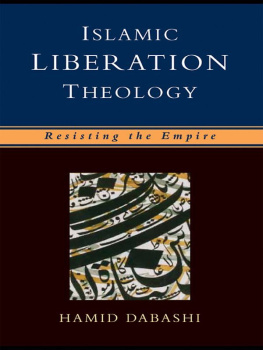
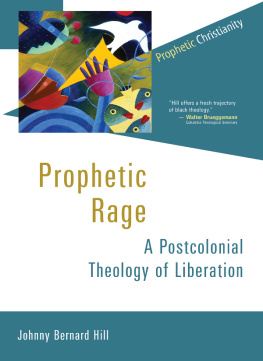
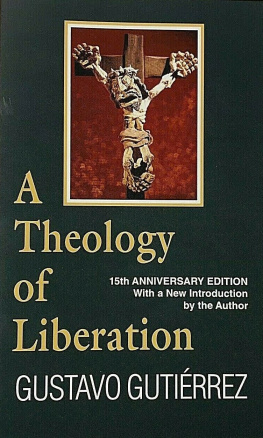
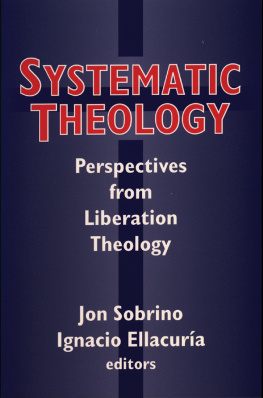
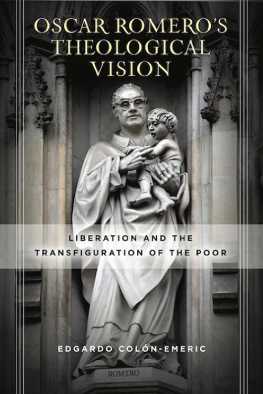

 Founded in 1970, Orbis Books endeavors to publish works that enlighten the mind, nourish the spirit, and challenge the conscience. The publishing arm of the Maryknoll Fathers and Brothers, Orbis seeks to explore the global dimensions of the Christian faith and mission, to invite dialogue with diverse cultures and religious traditions, and to serve the cause of reconciliation and peace. The books published reflect the views of their authors and do not represent the official position of the Maryknoll Society. To learn more about Maryknoll and Orbis Books, please visit our website at www.maryknollsociety.org.
Founded in 1970, Orbis Books endeavors to publish works that enlighten the mind, nourish the spirit, and challenge the conscience. The publishing arm of the Maryknoll Fathers and Brothers, Orbis seeks to explore the global dimensions of the Christian faith and mission, to invite dialogue with diverse cultures and religious traditions, and to serve the cause of reconciliation and peace. The books published reflect the views of their authors and do not represent the official position of the Maryknoll Society. To learn more about Maryknoll and Orbis Books, please visit our website at www.maryknollsociety.org.